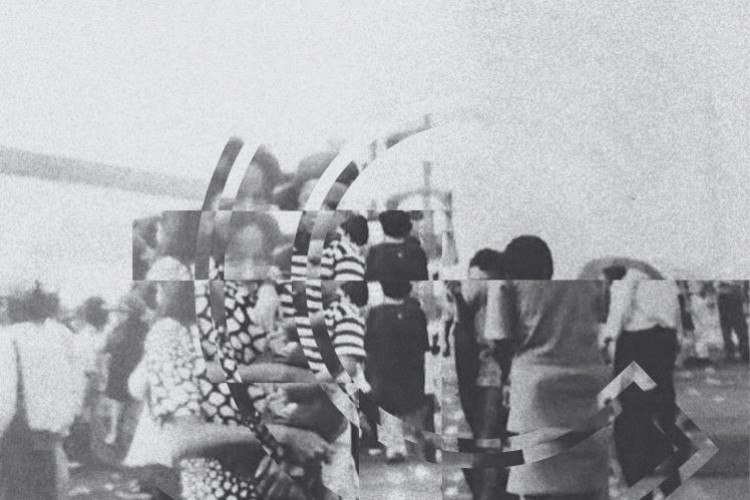
The Urgency of Self-Forgiveness
In this column submission, Annisa Puspa Andira D. writes about the intricate journey towards self-forgiveness.
Words by Whiteboard Journal
It’s uplifting to notice various movements fight for diverse matters; human rights violations, social injustice, gender equality, climate change, and so on. Most of them are aware these problems are crucial for an immediate settlement. The voice of people become louder and their effort more determined. But, how about the fights for the inner self? The struggle to overcome depression, anxieties, burnout, or over-weariness in surrounding situations is more perceptible than before, especially during pandemics. The impact itself becomes more apparent. With the inside battle remains, perhaps considered to learn more about self-forgiveness and how it can be the solution to overcome those agonizing situations.
When we talk about ‘forgiveness,’ how often do we associate it with others? We simply dozed off and let our mind wanders to the mistakes we’ve made to others and try to figure out how to repay them. However, someone is actually significant enough to be given our forgiveness but always falls into oblivion. As much as others deserve our forgiveness, we should be more entitled to it.
Growing up, there are specific rules to be followed; the dos and don’ts in life and the act of forgiveness are included. When mistakes had been made, the perpetrator had to apologize for what they’d done wrong. But, how about the mistakes that done were harming ourselves? Unfortunately, our shared culture doesn’t seem to acknowledge how self-forgiveness is as essential as forgiving others.
The Nature of Human: Making Mistakes
Forgiveness is interconnected with a mistake. To make it or dwell on it, frankly, mistakes are in our nature. It happens to be one of the traits in becoming a human. However, there’s been a duality in the conception about making mistakes; it’s believed as a necessary learning tool, but at the same time, it should be avoided. The emphasis on the avoiding mistake concept has been socially constructed for centuries. As the article in Psychology Today, “The anxiety about making mistakes is very much rooted in the old paradigm of being as opposed to becoming. This worldview has us see ourselves as fixed and static, not as flowing and changing. This perspective roots us in the fear of making mistakes.” The fear itself had ‘forced’ us to present ourselves immaculate in front of others. Whereas the act of appearing clean as there is no dirt or baggage behind could leave a deep wound in the soul.
The idea about mistakes should be differentiated: a mistake that must be avoided and necessary to go through. Committing a crime, deliberately hurting other people, or creating chaotic events is considered a mistake anyone should avoid. It involves things that are wrong in any perspective, particularly in terms of morality. And then, the other mistakes are treated as a pre-development stage, and sometimes they’re inevitable. Our childhood perhaps could be the appropriate case of how the mistake is a part of a learning tool. Stumbled down constantly while tried to learn how to walk or the gibberish that didn’t make any sense back then. We crawled until we ran, we twaddled until we spoke fluently, trivial errors that many of us as a child must be deal with. Behind those mistakes, there are lessons to be learned. Act as a mentor, mistake contributes to evoking our sense to observe, perceive, and comprehend the surrounding situations. In the process, a handful of skill sets would be attained depends on how far our endeavor in acknowledging things. These kinds of mistakes are the indispensable formula to our maturation process.
Another concept that is tied closely with the mistake is a failure. Mistakes are commonly presumed as a seed of no-hoper. A single mistake is considered degrading someone’s quality. The thought of it raised the fear of making mistakes, to begin with. If you had read about it, reminding you that ‘failure’ is another concept that’s been constructed by society. How achievements being praised and over-valued leads to the emergence of a social ‘standard’ suggested as an absolute trait to be considered successful in this civilization. Whether it’s behavior, beauty, or self-achievement standards, placing oneself in a position that does not meet the so-called ‘standards’ assumed to be misdirected, lost and ended-up failed. It’s funny to see how the glorified ‘standard’ has its own flaws, where the elements of one’s experiences, references, perspectives, and efforts are not included. In fact, there is no actual communal agreement regarding the ‘standard’ itself, especially about what makes a person a failure. And yet, still, quite a lot of people have fallen into this pit. The mistakes that are believed to be the source of failure become a burden for some people.
What is Self-Forgiveness?
Mistakes seem like an ineluctable fate for us as a human, including mistakes toward ourselves. Therefore, the act of forgiving doesn’t only apply to the errors on the outside but also within. In The Science of Forgiveness, self-forgiveness is action to be taken while getting through self-condemnation. People who suffer from self-condemnation typically feel they have violated their own internal values and moral code. They tend to feel inadequate in fulfilling some behavior standards. It’s expected that self-condemnation triggered depression and later could be followed by shame, guilt, and the act of self-blame that the core of oneself is the problem from the beginning.
Being drowned in a negative vortex such as self-condemnation slowly creates internal catastrophe. Without realizing, it has great potential for self-harm, from mental wounds to physical injuries. The saying of ‘the greatest enemy is yourself’ is embodied in this situation. Like conflict, a reconciliation act is needed to resolve the aftermath of the struggle and heal all the wounds. This is when self-forgiveness plays its role. Based on the journal ‘Self-Forgiveness: The Stepchild of Forgiveness Research’, most self-forgiveness theorists associated the concept of self-forgiveness with self-love and respect as opposed to one’s own wrongdoing. Make peace with yourself to gain self-awareness and reach tranquility is the primary goal of self-forgiveness.
The Science & Benefits of Forgiving Ourselves
In ‘Handbook of the Psychology of Self-Forgiveness,’ the act of self-forgiveness has the ability to release negative emotions directed at oneself. In a scenario where we became the victim and tried to forgive other’s mistakes, a sudden light feeling emerged that felt heavy before as the burden of the negative emotions, such as anger or deep disappointment. That is also what happens when we try to forgive ourselves. All kinds of emotions that used to be raging inside subsided like smoldering fire extinguished by water. Once the wave of emotions quite down, our logic and rationality start to fill our mind. It helped us better in mapping out existing problems and exploring what was really happen inside ourselves.
When we are genuinely able to use our brain and leave the negative emotion behind, we are deliberately able to interpret the burdens inside that had been consuming our mind relentlessly before. Slowly but sure, our awareness begins to rise and leads us to elaborate on the situation. Being aware of what’s happening inside us makes it easier to accept and value the struggle. This is why most self-forgiveness researchers and experts emphasize the interrelatedness of self-forgiveness on self-love. When self-forgiveness is successfully attained, supposedly, it raises our self-acceptance and self-respect. We can start believing in ourselves that we belong in this world and we are born for something.
Performing Self-Forgiveness
Even though self-forgiveness could be the solution for self-improvement, there are plenty of obstacles in the process that make self-forgiveness very challenging. Our inability to escape from negative emotions is one of the main reasons that make self-forgiveness difficult. Tremendous pressure, either from inside or outside or perhaps both, could become a barrier in doing it too. The pressure on perfection or tried to present yourself the best in front of others could blur out our judgment on the thought of being the best for yourself without thinking about outside of you. It’s better to live by our own expectations than someone else’s.
True self-forgiveness is derived from an accountability attitude for the mistakes made and accepting these mistakes as a step for self-improvement. Forgiving yourself without a sense of responsibility nor any regrets doesn’t count as self-forgiveness but pseudo-self-forgiveness. The concept of pseudo-self-forgiveness stressed the irresponsible trait to detach oneself from mistake redemption. Another reason that makes self-forgiveness challenging to be implemented.
The DIY Workbooks in the Journal Counseling of Psychology of American Psychological Association (APA) demonstrate 6 steps on self-forgiving that has gone through a controlled trial, including: (1) Seek divine forgiveness beyond ourselves, such as God, nature, humanity or things you feel to be Sacred; (2) Make amends with those whom we have harmed; (3) Self-repair on our psychological states; (4) Make a sincere decision to forgive oneself and pursuing emotional forgiveness; (5) Rebuild self-acceptance; (6) Set virtue for the future. If you feel that the burden inside you is too heavy and painful, sharing it with your inner circle or seeking professional help is highly recommended to support the healing process and achieve self-forgiveness.
Hurting yourself as a punishment isn’t a solution to make things right or better. Although self-forgiveness seems like tricky business, it doesn’t mean it’s impossible. Keep in mind that everyone has a second chance to gain mercy and forgiveness, including ourselves. Accepting that we are humans who will constantly make mistakes and have our own flaws could be the beginning of your self-forgiveness journey.












